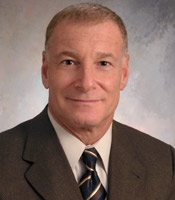
ACG’s Immediate past president Harry Sarles deserves credit for stirring the muck of the MOC that evolved to a ground swell and then torrent of dissatisfaction that led ACG along with our sister GI societies and other specialty societies to scuttle ABIM’s intended Maintenance of Certification (MOC) procedures. Richard Baron, President and CEO of ABIM in an honorable move, apologized to ABIM diplomats stating “We got it wrong and sincerely apologize…We launched programs that weren’t ready and we didn’t deliver an MOC program that physicians found meaningful…and…we want to change that.”
According to Dr. Baron’s message, ABIM is suspending the Practice Assessment, Patient Voice and Patient Safety requirements for at least two years such that no internist/specialist will have their certification status changed for not having completed activities in these areas for at least the next two years.
Diplomats who are currently not certified but who have satisfied all requirements for MOC except for the Practice Assessment requirement will be issued a new certificate this year. Requirements for earning a new certification still include completing 100 points, including 20 in Self-Evaluation of Medical Knowledge and passing an exam.
Within the next six months, Baron has promised that ABIM will change the language used to publicly report a diplomat’s MOC status on its website from “meeting MOC requirements” to “participating in MOC.”
In addition – ABIM is updating the Internal Medicine MOC exam to focus on making the exam more reflective of what physicians in practice are doing, with any changes to be incorporated beginning fall 2015, with more subspecialties to follow.
Although many details remain to be worked out, it is possible that by the end of 2015, ABIM will recognize most forms of ACCME-approved Continuing Medical Education, allowing new and more flexible ways for internists to demonstrate self-assessment of their medical knowledge. ACG will continue to provide such CME and focus on potential courses directed toward MOC requisites at as many of our venues as possible. We are also exploring ways to include the Red Journal and ACG Universe as potential MOC resources. ACG will also continue to work to make the GI recertification test more reflective of our members’ practices.
Another one of Harry Sarles’ critiques has been the financial constraints imposed by ABIM regarding MOC fees and, happily, based on Dr. Baron’s message ABIM plans to maintain MOC enrollment fees at or below the 2014 levels through at least 2017.
We applaud changes that ABIM leadership has made and appreciate how ABIM intends to to work with “the community” that includes specialty societies. We want you to know that ACG is actively engaged in the dialogue with Susie Kane leading our charge. In addition, Colleen Schmidt from the ASGE and John Allen from AGA are also contributing to the ABIM GI advisory committee efforts.
We look forward to working with ABIM to re-design the MOC process including the exam and as Dr. Baron states “ensuring that it remains relevant and valued by physicians and their patients and reflects a set of common values shared by internists (specialists).
Stephen B. Hanauer, MD. FACG, ACG President

